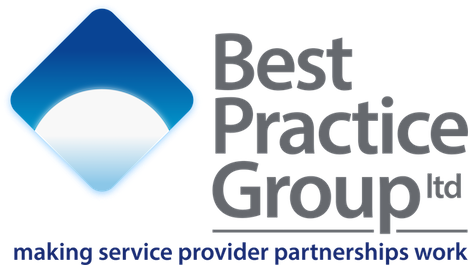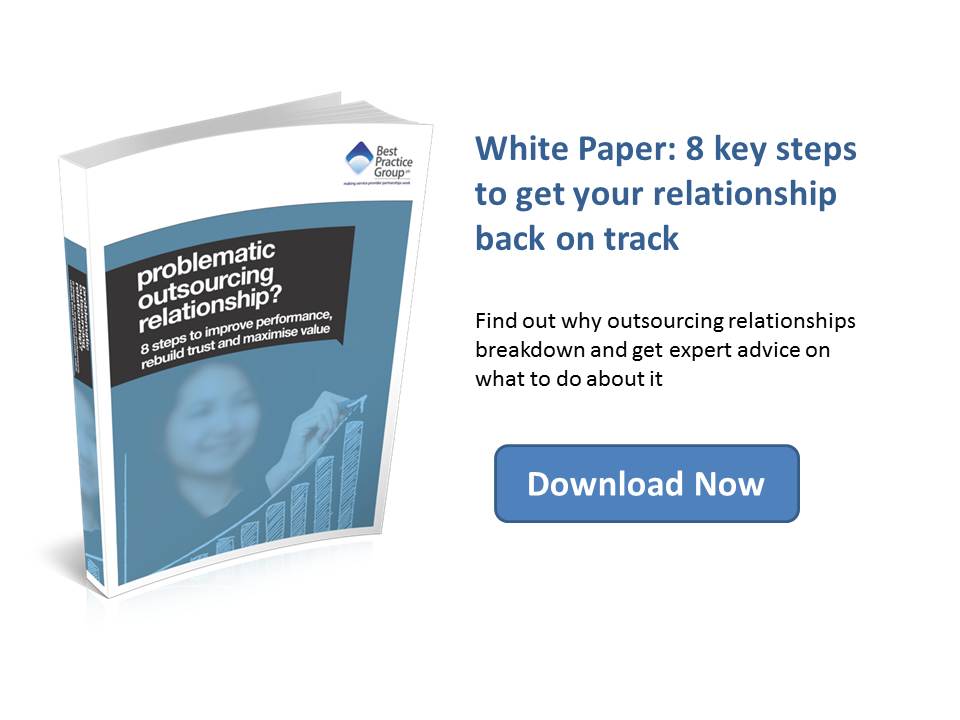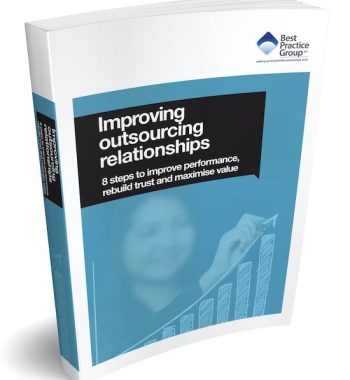 We all feel a little out of our depth at times. Even the most experienced individuals occasionally find themselves out of their comfort zones. After all, no one person can know everything, which is why it is so important to know when, and who, to ask for help. A mentor, business advisor or critical friend support can offer the guidance or specific expertise you need when you just want that sanity check to test or align your thinking.
We all feel a little out of our depth at times. Even the most experienced individuals occasionally find themselves out of their comfort zones. After all, no one person can know everything, which is why it is so important to know when, and who, to ask for help. A mentor, business advisor or critical friend support can offer the guidance or specific expertise you need when you just want that sanity check to test or align your thinking.
While considering how to approach this issue of management seeking assistance, I was reminded of a rather amusing book – The Peter Principle: Why Things Always Go Wrong – co-authored by Laurence J. Peter and Raymond Hull in the late 1960s. Essentially, the Peter Principle states that in business, people are promoted until they reach their hierarchical ceiling – called the ‘position of incompetence’. The theory suggests that if you promote a person based on their competence in their current role, rather than the role they are being promoted into, eventually they are likely to reach a position doing a job that they are really not very good at and, therefore, will not be promoted away from. This suggests that businesses are full of people who aren’t really that good at what they do, simply because they are stuck in roles they should not have been given in the first place.
How to escape the Peter Principle trap
Don’t become a casualty of the Peter Principle, trapped in a role/promotion/project where you believe you are at the edge of your capabilities. Break the mould by not facing it alone:
- Know to ask yourself whether you have taken on too much
- Know when to sense check yourself as to whether you need to ask for help
- Know who to ask for the best advice.
Knowing when you have taken on too much
Some projects or positions are earned, some are thrust upon us. No matter whether you work in the private or public sector, austerity measures and economic reality are likely to have affected your organisation, which means you’ll be juggling far more tasks than you used to have, simply to cover for lost colleagues or broadening responsibilities. It can be tempting to keep quiet and push on through – in fact that’s what most people do – but recognising when you are being asked to stretch yourself beyond your area of expertise is what separates a successful manager from one who has reached their ‘level of incompetence’.
Knowing when to ask for help
The old adage ‘pride cometh before a fall’ is so true. You may wish to seem impervious to stress and the master of every task set for you, but when you are being asked to deviate far outside of your skillset, your experience and your comfort zone, it is important to put pride to one side and ask for the right sort of help. The finest managers are those who work with others to solve problems and seek critical friend support, not those who attempt to ‘get by’ in order to save face and risk failure.
Knowing who to ask for the best advice
Many business leaders cite mentoring, or critical friend support, as one of the reasons why they are where they are today. Richard Branson, on the Virgin blog, states: “If you ask any successful businessperson, they will always have had a great mentor at some point along the road.” He names Sir Freddie Laker as being among those whose advice and guidance he valued when setting up Virgin Atlantic.
Having someone to ask when a second opinion could lead to a better decision is seen as essential in today’s business world – a trusted and talented expert who can add a new dimension to the decision-making process and who can inspire and drive innovation. Of course, there is plenty of advice available on the web, but discovering the wheat in the sea of chaff out there in the digital ether can be a challenge in itself and a mentor offers the benefit of a bespoke solution every time.
Have you ever attended a seminar, listened to a webinar, read a blog or watched someone on TV and wished that there were some way of bottling what they had, some way that you could tap into their knowledge when you are in need of advice… an expert on-call? Well, that’s what a mentor offers, talent on demand – and here are a few of the reasons why you might benefit from such critical friend support:
- Confidence. Sometimes a mentor’s job is not to advise, but simply to assess a decision and inform you that you are on the right track. This affirmation may be all that’s needed to give you the confidence to push forward with decisions on your own next time.
- Conviction. When an important decision must be made, a trusted mentor could support you through a brave choice; an innovative or mould-breaking choice that otherwise would have been quashed by your risk-averse side.
- Breadth of expertise. Many of us have roles that cover a variety of responsibilities, and two heads are almost always better than one for dealing with the plethora of issues that could arise at any time. Impress the ‘powers that be’ with your ability to juggle projects with ease.
- You’re never too experienced to learn something new. Mentors are often experts in their field and, therefore, offer you a unique opportunity to learn new solutions that can be applied to your work – vendor relationships, resource management, negotiating skills, and so forth.
- Productivity. Second-guessing, procrastination and research can all slow work down. Having access to a resource that’s willing and able to offer rapid, accurate advice on specific issues often helps to increase productivity.
- Propulsion. A mentor is also usually proactive. They don’t just need to sit there waiting for your questions. You can agree for them to take a more involved role in your thought process to push you to be all that you can be, and make you more aware of when you are being your own worst enemy.
- Support. Mentoring can transform your business or the way you approach your work – knowing you can pick up the phone to someone who is likely to have the answers is a liberating feeling and one that can have far-reaching positive benefits.
Who to use and how to find them?
Step 1: Be clear on what it is that you want advice or support on. Quantifying the outcome from the advice you want is always the hardest part of the process. Often you’ll be thinking ‘I just want to be able to bounce ideas around’ or to ‘sanity check my thinking’. However, that isn’t enough focus, direction or quantification. You’ll end up burning a lot of your money and wasting time unless you are absolutely clear about the outcome that will result from the support you want to receive.
Step 2: Identifying where you might find those who can support you. While there may be many individuals who profess to offer critical friend support, including people you already know or whom they know, it is important that you qualify their suitability for the task. What evidence exists that they themselves have had successful outcomes in the area in which you are looking for support? For example, there are many, many ‘business consultants’ who suggest they can help you improve your sales or lead generation through marketing. But you need to ask yourself whether or not they follow their own advice? If they have improved their own lead generation by 50% over the last 12 months or they have increased their own sales by 35% over the last six months by using the principles and guidance they advise you to follow, all well and good. But if they have not, you have to ask yourself how much credibility their proposals have – even if they provide ‘reference sites’ of other clients that have used their services. If they aren’t going to the same lengths themselves, you should question whether the proposed services or support would work for you.
Step 3: Agreeing the ‘how’ of the outcome. There is a tendency to ask advisors to critically challenge your thinking, but then to not agree on ‘how’ that outcome will be achieved. You should have already been clear about the outcome you want to achieve; but don’t be wedded to the ‘how’. If you want a lap dog so you can have a third party confirm you are right all of the time, then buy a puppy. If you really want to widen your thinking ability to improve your contribution to whatever it is you do, you need a critical friend who doesn’t need ‘bad’ work, but is very interested in what you are trying to achieve. At the same time, while being constructive, they shouldn’t be frightened about grabbing you by the scruff of the throat (metaphorically speaking) and being clear about why you are wrong, in their experience, and how to approach matters in a more focused way so you achieve your outcome faster and at a lower cost.
For those who prefer a more structured approach to mentoring and coaching from the academic perspective, there are many organisations that offer structured mentoring and coaching programmes including the Institute of Leadership and Management.
If you prefer the ‘grabbing you by the scruff of the neck’ approach, then there are other independent experienced practitioners who have learned from their organisation’s war wounds and used those lessons to drive proven success in their own fields, such as Diane Johnson (ex-Tesco, NHS and GHD Hair Products; public and private sector HR advice), and Steve Houghton-Burnett for public sector transformation and SME business development. Dom Moorhouse is an entrepreneur who set up his own business from scratch and sold it for squillions five years later. He has a significant volume of thought leadership on his website that can help you critically challenge your own thinking.
There are also other peer-to-peer groups who provide formal mentoring services and consist of proven experts in their fields. These include:
- MD2MD: private sector business round table attended by other MDs and CEOs all sharing ideas, concepts and critically challenging their thinking between one another. They have different groups across the country.
- Vistage: a similar competitive group to MD2MD above.
- SOCITM: the Society of IT Managers. Specialists in public sector IT. They have both formal and informal mentoring schemes for CIOs and IT directors/managers in the public sector, all run by practising CIOs.
- SOLACE: the Society for Local Authority Chief Executives. Existing and past CEOs all mentor one another and incoming CEOs in the local authority sector.
If there are specific areas where you would like critical friend support and mentoring but are struggling to find the right people, please feel free to contact us and we’ll be more than happy to try to put you in touch with other organisations/individuals that we ourselves have either used or we know have proven experience in the particular field you are looking for advice on.


